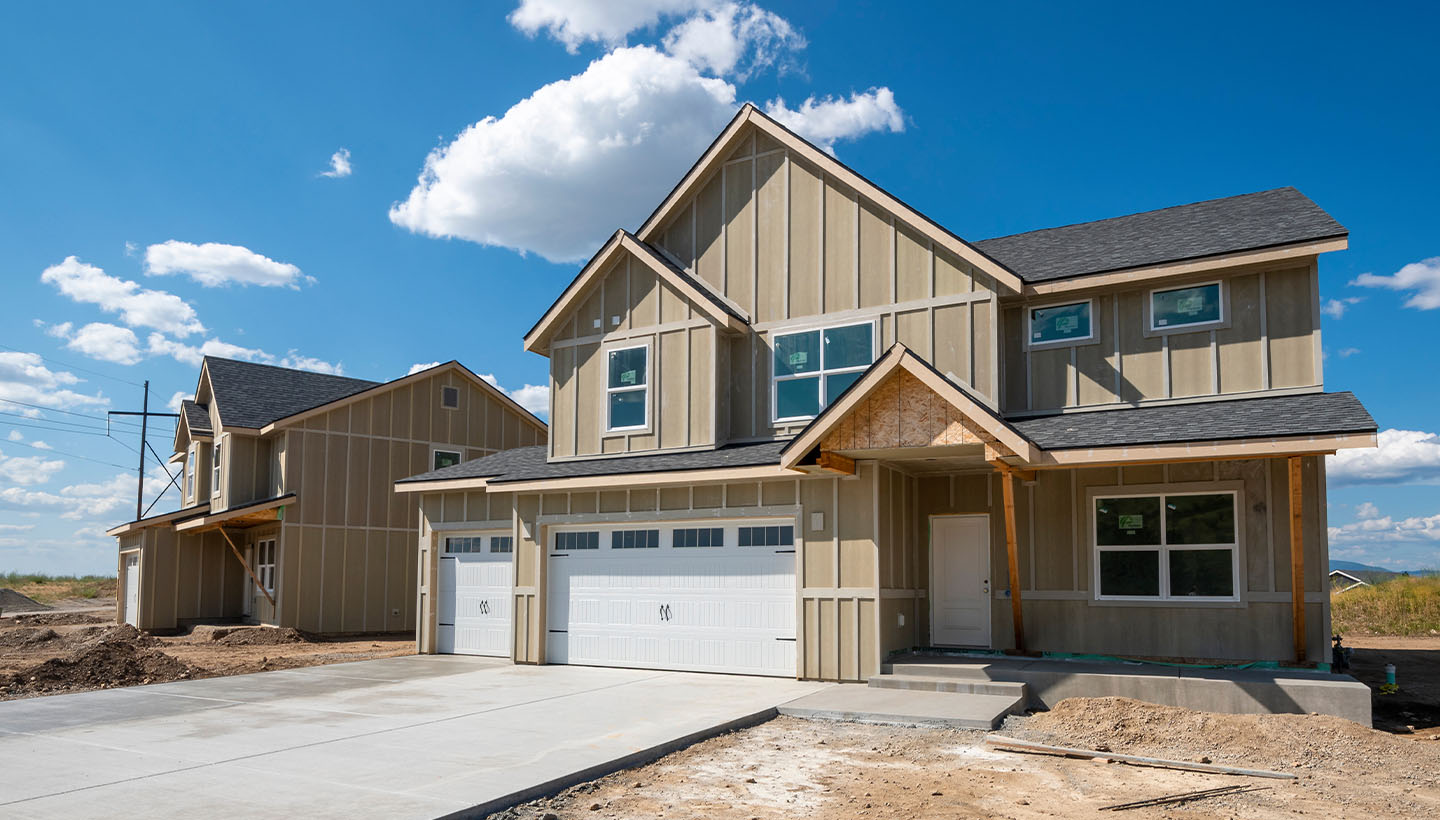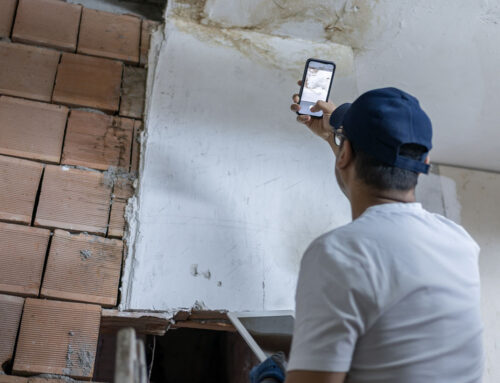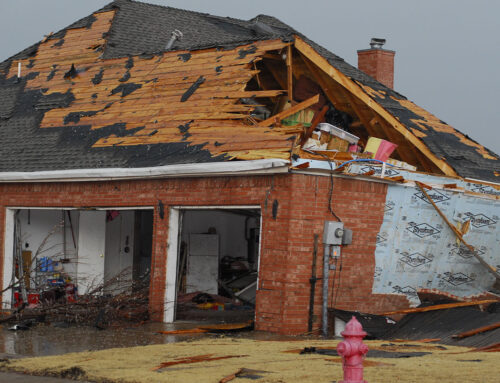
Why New Construction Homes Still Need a Home Inspection
As a home inspector, you’d hope that the shiny, new home that just sprouted up in the neighborhood is free of common issues like an uneven foundation, unsealed windows, and fire hazards. Heck, you probably assume everything was done up to code and can pass an inspection with flying colors! To that, we chuckle. Here is why new construction homes still need a home inspection.
Why Inspect a Newly Built Home?
Unfortunately, newer doesn’t always mean better. In fact, according to the National Association of REALTORS® (NAR), as many as 65% of buyers who conducted inspections on new construction homes had issues on the report, and almost a quarter of them failed inspection.
Turns out, with new homes being built so quickly to meet market demands, plus increased construction costs, the pressure is on builders to crank out properties faster than ever. This alone can cause some issues to arise. Here are some of the issues you may run into when you inspect new construction.
Although a home inspection is not typically required regardless of the age of the property, it’s still a good idea for buyers to get a home inspection, if even for that added peace of mind knowing that their future home is safe to live in.
Common Issues Found in New Construction Homes
Despite being a fresh build, these are some of the most common errors you may encounter during the inspection:
- Structural integrity problems
- Electrical issues like poor wiring installation
- Plumbing issues including inconsistent water pressure
- Insufficient insulation or energy inefficiency
- Cosmetic defects like paint bubbling or unfinished floors
Sound like the usual suspects? That’s why it’s so important for these inspections to get done.
Stages of Inspection for New Construction Homes
Sometimes, inspectors can be hired to do walk-throughs during various construction stages to ensure that the property is safe and up-to-code. These inspections can be done by a home inspector, or alternatively, private building inspectors, local authority building inspectors, or structural engineers, who all can make great contacts in your inspection network.
One major benefit to inspecting a property at this stage is that the builder would be responsible for repairing any issues that come up, rather than the buyer or seller of the home, down the line.
These are the types of inspections that could be requested during the construction process leading up to the final walkthrough, and the specific areas of focus for each one:
- Pre-Construction Inspection – Foundation, drainage
- Frame Inspection – Structural components, plumbing, electrical wiring
- Mechanical Systems Inspection – HVAC systems, appliances
- Pre-Drywall Inspection – Insulation, electrical systems
- Final Walkthrough Inspection – All construction, including cosmetic finishes
The reports from any or all of these inspections would provide helpful information for you during your inspection before the property sells, so it could be a good idea to inquire about these inspections.
Home Inspection Checklist for New Construction
When you do a home inspection on a new construction property, make sure you spend just as much time observing the usual areas as you would on an older property. Your typical home inspection checklist applies here, but you’ll want to spend some extra attention on cosmetic areas, and making sure that the way a home was built stands up to code. Plus, new construction may include some funky features that you aren’t used to seeing in your standard inspection.
It’s important to note that while a home inspector can perform many parts of the following new construction inspections, some special training or certifications may be necessary to get further into the details. Following these checklists, we’ve included a list of recommended specializations and certifications per area of new construction inspection.
Pre-Construction Inspection Checklist
This stage ensures the site is ready for construction.
Site Preparation
- Verify the lot is cleared and graded properly.
- Check for proper drainage and erosion control measures.
- Confirm utility connections (water, sewer, electricity) are in place or planned.
Foundation Preparation
- Inspect soil compaction and stability.
- Verify the foundation layout matches the plans.
- Check for proper placement of footings and rebar.
Frame Inspection Checklist
This stage focuses on the structural integrity of the home.
Foundation
- Check for cracks, uneven surfaces, or water pooling.
- Verify anchor bolts are installed correctly.
Framing
- Inspect walls, floors, and roof framing for alignment and stability.
- Ensure all beams, joists, and trusses are properly secured.
- Verify window and door openings are the correct size and square.
Roof
- Confirm roof sheathing is installed correctly.
- Check for proper flashing and waterproofing.
Safety
- Ensure temporary supports are in place where needed.
- H3 Mechanical Systems Inspection Checklist
- This stage ensures the home’s essential systems are installed correctly.
Plumbing
- Inspect water supply lines and drainage pipes for proper installation.
- Verify plumbing is pressure-tested for leaks.
- Check placement of fixtures (sinks, tubs, toilets).
Electrical
- Confirm wiring is installed according to the electrical plan.
- Verify outlets, switches, and light fixture boxes are in the correct locations.
- Check for proper grounding and circuit breaker installation.
HVAC
- Inspect ductwork for proper sealing and placement.
- Verify HVAC units are installed and functioning.
- Check for proper ventilation and insulation around ducts.
Pre-Drywall Inspection Checklist
This stage ensures everything behind the walls is in place before drywall is installed.
Framing
- Recheck framing for any missed issues (warped wood, loose nails).
- Verify fire blocking and bracing are installed.
Insulation
- Confirm insulation is installed in walls, ceilings, and floors.
- Check for gaps or compressed insulation.
Plumbing, Electrical, and HVAC
- Ensure all systems are complete and pass inspection.
- Verify pipes, wires, and ducts are properly secured and insulated.
- Check for any penetrations in the framing that need sealing.
Moisture Barriers
- Inspect vapor barriers and waterproofing materials.
- Verify windows and doors are sealed properly.
Final Walkthrough Inspection
This is the last chance to catch any issues before closing.
Exterior
- Inspect siding, paint, and trim for defects.
- Check landscaping, grading, and drainage.
- Verify driveway, walkways, and patios are complete.
Interior
- Test all doors and windows for proper operation.
- Inspect walls, ceilings, and floors for imperfections.
- Verify cabinets, countertops, and fixtures are installed correctly.
Mechanical Systems
- Test all plumbing fixtures for leaks and proper drainage.
- Verify electrical outlets, switches, and light fixtures are functional.
- Test HVAC system for heating, cooling, and airflow.
Appliances
- Ensure all installed appliances are operational.
- Check for proper installation and alignment.
Safety
- Test smoke and carbon monoxide detectors.
- Verify handrails, guardrails, and stairs meet safety standards.
Final Details
- Ensure the floors are properly sealed.
- Check for paint bubbles or other defects.
When a Specialist May Be Needed
Some parts of the inspection process require specialized knowledge or additional home inspection certifications. Always keep in mind your Home Inspection Standards of Practice (SOP) before you attempt to inspect any dangerous parts of a home, or those you are not required to inspect. For these, you should always refer to a specialist.
Foundation and Soil Testing
Specialist Needed: Geotechnical engineers or structural engineers.
Inspecting soil compaction, stability, and foundation integrity often requires advanced tools and expertise beyond a general inspector’s scope. You may also be able to conduct a soil inspection with the right certification, though this is not required to get your general home inspection license, and to avoid any errors and omissions, you should not attempt to inspect any part of the soil without it.
Mechanical Systems (Plumbing, Electrical, HVAC)
Specialist Needed: Licensed plumbers, electricians, or HVAC technicians.
As a home inspector, you may be able to identify visible issues, but licensed professionals are needed to conduct detailed inspections, pressure tests, or load calculations to ensure systems meet code and function properly.
If you suspect that something may be wrong with any part of an HVAC system, you can recommend that the property owner gets another inspection with the appropriate professional for that issue.
Roofing
Specialist Needed: Roofing contractors or certified roof inspectors.
A general inspector can check for visible issues, but a roofing specialist may be required to assess waterproofing, flashing, and long-term durability. Per the SOPs, a home inspector is never required to put themselves in physical danger to inspect areas like a roof or crawlspace.
With some help from technology like a droid, you can get a basic idea of the roof structure without endangering yourself, but a specialist may be needed for a more thorough inspection.
Energy Efficiency and Insulation
Specialist Needed: Energy auditors or certified insulation inspectors.
Evaluating insulation, air sealing, and energy efficiency often requires specialized knowledge and tools like thermal imaging cameras.
Code Compliance
Specialist Needed: Municipal building inspectors or code enforcement officers.
Only municipal inspectors can officially certify that the construction complies with local building codes. While experience in the field may help you learn about local building standards and code violations, this is not an area you’re expected to report on, so always refer to a specialist if you suspect something is awry.
Structural Concerns
Specialist Needed: Structural engineers.
If there are concerns about the framing, load-bearing walls, or foundation, a structural engineer is needed to provide a detailed analysis and recommendations.
Environmental Testing
Specialist Needed: Environmental consultants or certified inspectors.
Some areas take specialized education to be able to inspect. And some parts of the country are more susceptible than others when it comes to specific environmental or pest concerns. Testing for radon, mold, asbestos, or lead requires specific certifications and equipment.
For Homes New or Old, Home Inspectors Get the Job Done
Turns out, it doesn’t matter if a home was just built yesterday: it is bound to have some issues that warrant a home inspection before someone buys the property. These inspections can even be done during the construction phase to ensure that crucial repairs are made before the homeowner moves in. While your general home inspection license is enough to get the job done, adding some certifications can help you check more items off the list (and make a little extra cash doing it)!




